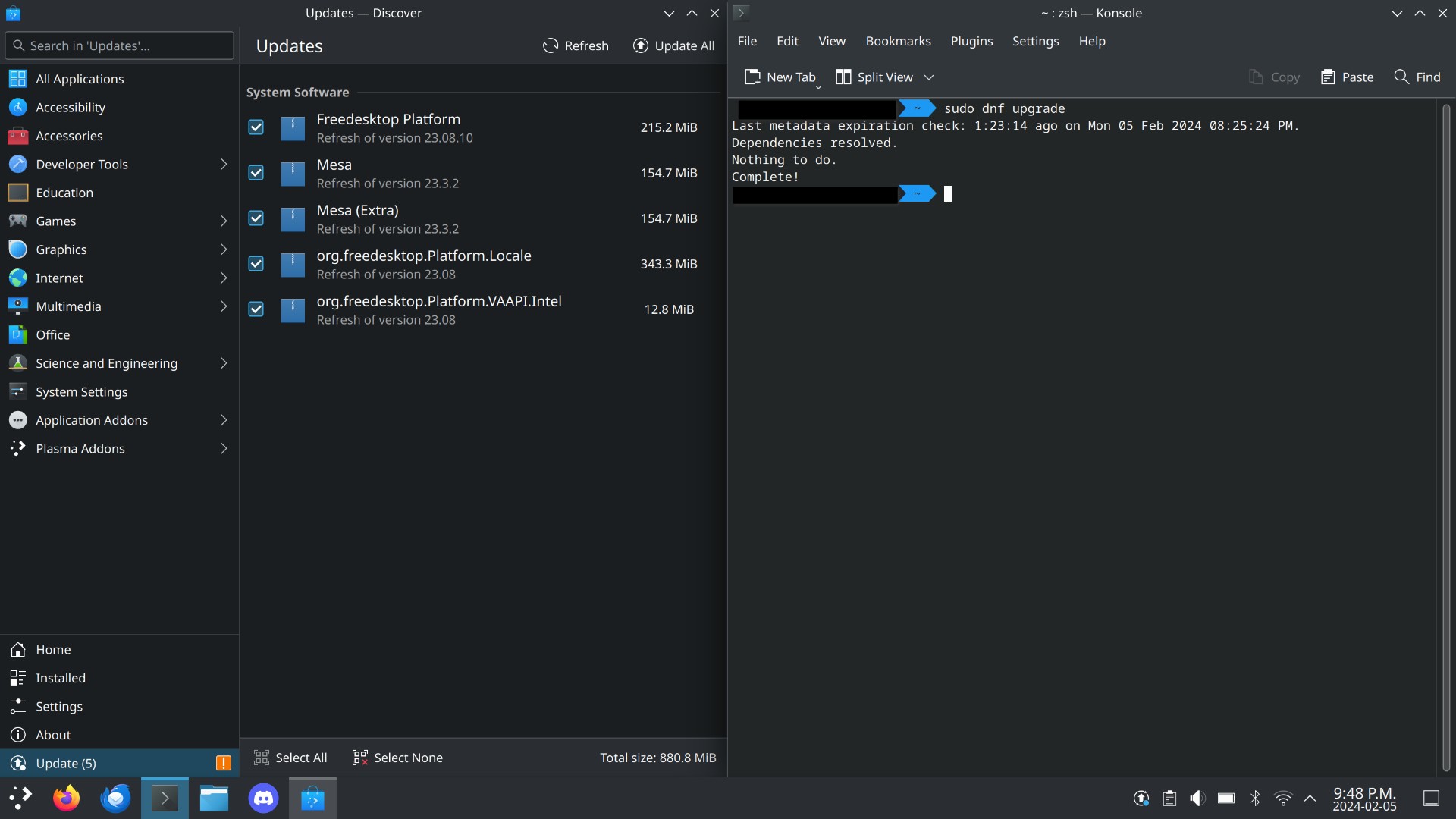this post was submitted on 06 Feb 2024
81 points (90.1% liked)
Linux
59050 readers
780 users here now
From Wikipedia, the free encyclopedia
Linux is a family of open source Unix-like operating systems based on the Linux kernel, an operating system kernel first released on September 17, 1991 by Linus Torvalds. Linux is typically packaged in a Linux distribution (or distro for short).
Distributions include the Linux kernel and supporting system software and libraries, many of which are provided by the GNU Project. Many Linux distributions use the word "Linux" in their name, but the Free Software Foundation uses the name GNU/Linux to emphasize the importance of GNU software, causing some controversy.
Rules
- Posts must be relevant to operating systems running the Linux kernel. GNU/Linux or otherwise.
- No misinformation
- No NSFW content
- No hate speech, bigotry, etc
Related Communities
Community icon by Alpár-Etele Méder, licensed under CC BY 3.0
founded 6 years ago
MODERATORS
you are viewing a single comment's thread
view the rest of the comments
view the rest of the comments

Well, then I don't understand the downvotes, lol. The person i replied to said sometimes a distro will force a reboot, I said that's bad, and a bunch of people apparently disagree with that.
So when people say 'force a reboot' there are two things it can mean:
a reboot is required for updates to actually take effect. Linux sometimes does this for things like the kernel.
the OS forces you to stop everything you are doing and reboots the machine. I have only ever seen Windows do this. Not Linux, not even MacOS.
This might be where the confusion is coming in. @rtxn is referring to number 1 but the rest of us are referring to number 2
Those distros "force" you to reboot when you want to update (as opposed to allowing you to do the update on the running system). Think Windows 7 and earlier, that kind of forced reboots, back when people were fine with the way Windows did updates.